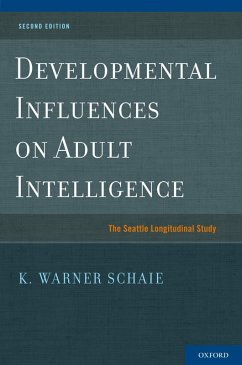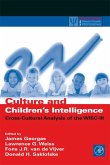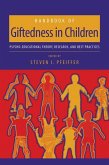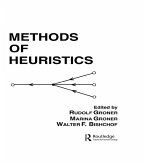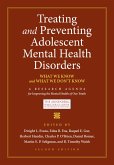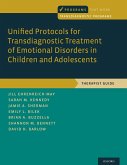Adult cognitive development is one of the most important yet most neglected aspects in the study of human psychology. Although the development of cognition and intelligence during childhood and adolescence is of great interest to researchers, educators, and parents, many assume that this development stops progressing in any significant manner when people reach adulthood. In fact, cognition and intelligence do continue to progress in very significant ways. In this second edition of Developmental Influences on Adult Intelligence, K. Warner Schaie presents the history, latest data, and results from the Seattle Longitudinal Study (SLS). The purpose of the SLS is to study various aspects of psychological development during the adult years. Initiated in 1956 and focusing on a random sample of 500 adults ranging in age from 25 to 95 years old, the SLS is organized around five questions: Does intelligence change uniformly throughout adulthood, or are there different life-course-ability patterns? At what age and at what magnitude can decrement in ability be reliably detected? What are the patterns and magnitude of generational differences? What accounts for individual differences in age-related change in adulthood? Can the intellectual decline that increases with age be reversed by educational intervention? The first edition of the book provided an account of the SLS through the 1998 (seventh wave) data collection and of the associated family study through the 1996 (second wave) data collection. Since that time, Schaie and his collaborators have conducted several additional data collections. These include a further longitudinal follow-up in 2005/06, a longitudinal follow-up and 3rd data collection for the family study in 2003/04, and acquisition of a 3rd generation sample in 2002. Hence, virtually all of the content from the first edition has been updated and expanded, and three new chapters are included on Health Behaviors and Intellectual Functioning, Biological Influences on Cognitive Change, and Prediction of Individual Cognitive Decline. This new edition is a valuable resource for researchers and practitioners specializing in adult development, aging, and adult education, as well as students and faculty in developmental, cognitive, and social psychology, psychiatry, nursing, social work, and the social sciences interested in issues of human aging.
Dieser Download kann aus rechtlichen Gründen nur mit Rechnungsadresse in A, B, BG, CY, CZ, D, DK, EW, E, FIN, F, GR, HR, H, IRL, I, LT, L, LR, M, NL, PL, P, R, S, SLO, SK ausgeliefert werden.

